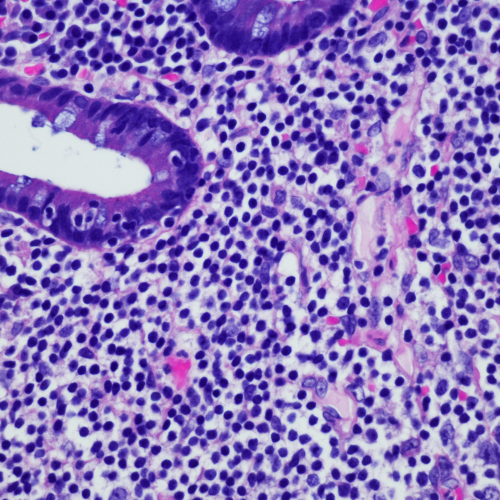
This month, we are spotlighting an important study by Dr. Hongbing Yu and his team that was recently published in PNAS. This study utilized multiple state-of-the-art technologies provided by Core Technologies and Services at BC Children’s Hospital Research Institute (BCCHR).
Dr. Hongbing Yu, a research associate in the Jacobson and B. Vallance Research teams, is studying how neurons, immune cells and microbes communicate in the gut. He and his colleagues studied a neuropeptide called vasoactive intestinal peptide (VIP) that is primarily secreted by neurons. They found that VIP promotes the recruitment of many immune cells to the gut, including group 3 innate lymphoid cells (ILC3s). ILC3s are important for the formation of immune tissues in the gut, and play key roles in host defense against intestinal pathogens. Their research findings could lead to the development of novel strategies targeting host components rather than microbes to treat intestinal infections and inflammatory bowel disease.

Dr. Yu’s research has been greatly facilitated by several technology platforms at BCCHR Core Technologies and Services. With the help from the BCCHR Histology Core, he was able to show that the lack of VIP makes the intestinal tissues susceptible to bacterial infections. To understand the basis for this, he used the high parameter flow cytometer BD FACS Symphony at the BCCHR Flow Cytometry Core to characterize different subsets of ILC3s regulated by VIP. He further sorted ILC3s via the flow cytometer BD FACS Aria and then transferred them into an animal model, confirming ILC3s confer protection against pathogen infections. Last but not least, through collaboration with the Analytical Core for Metabolomics and Nutrition (ACMaN), he found that VIP regulates the production of retinoic acid, a metabolite of Vitamin A, which increases the recruitment of ILC3s to the gut.
To learn more, read the full paper published in PNAS.




